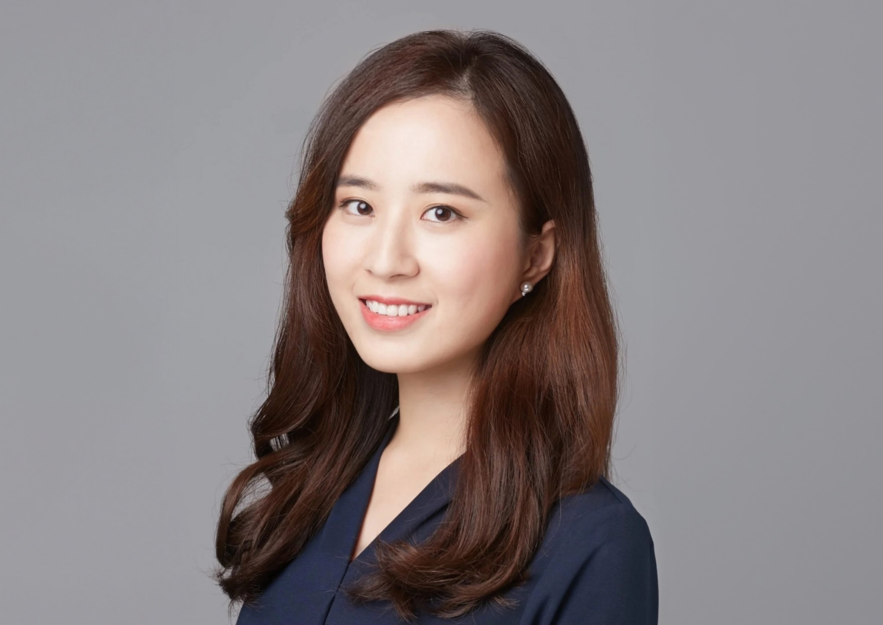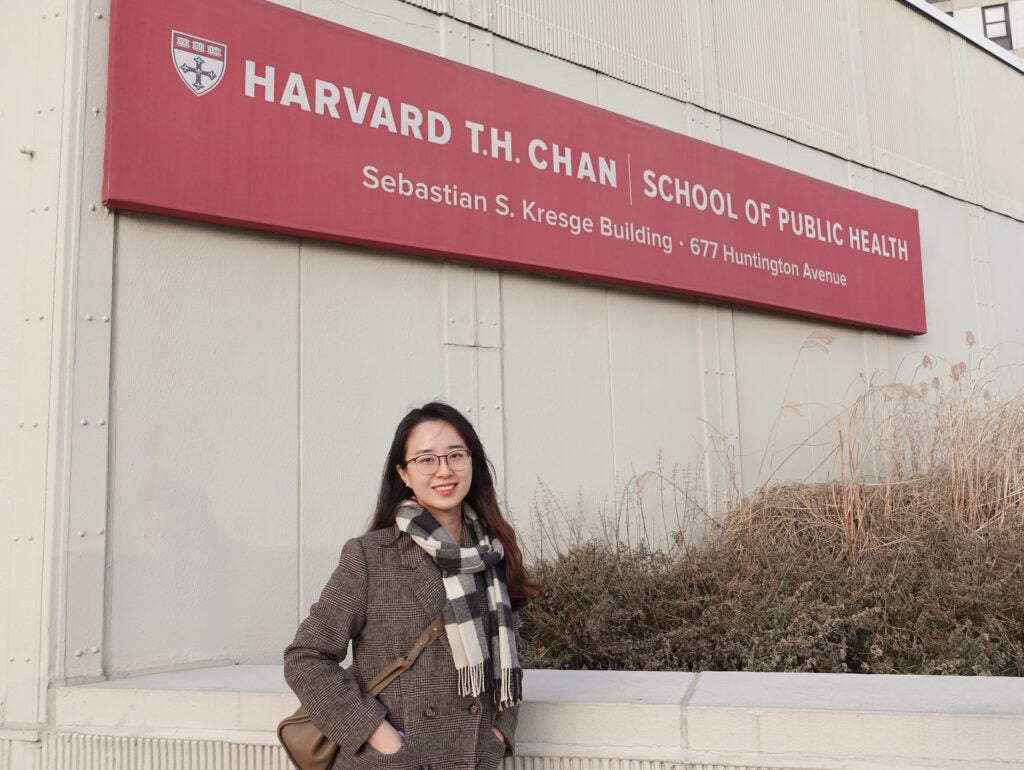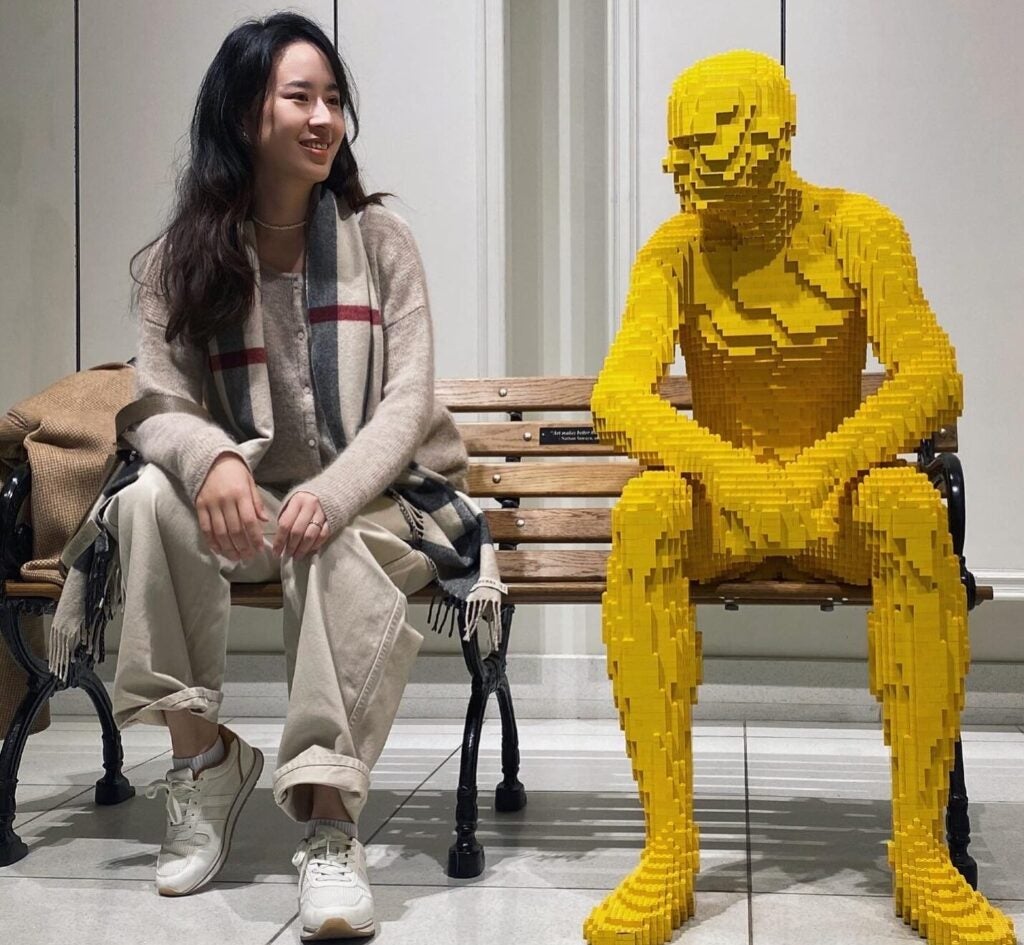Meet Dr. Hanmo Yang, Post-Doctoral Research Fellow
Part of an occasional series of windows
into the lives of researchers on the Harvard China Health Partnership.
How did you become interested in researching ageing in China?
Throughout my undergraduate and master’s studies in government and public policy, I’ve always been passionate about policy-related issues that have the potential to make a positive impact on society. Trained as an economist, I’ve come to understand that while China’s innovative path of development has created an economic miracle, it has also resulted in significant health-related challenges across different areas, such as the drastic demographic change that can pose a threat to the country’s future development. This led me to explore aging-related policy questions and its consequences, such as how to maximize the utility of both elderly parents as care-receivers and their adult children as caregivers, as well as the impact of increased life expectancy on economic development.
During the final year of my PhD studies, I worked on a research project led by Professor Xiaoyan Lei from Peking University, with Professor Winnie Yip serving as the expert consultant. The project focused on the current state and countermeasures of the innovative community and home-based models for elderly care. As part of this research, I had the opportunities to visit innovative elderly care facilities in China and learn from various international healthcare models. I am fascinated by how these innovative measures and successful international experiences can be adapted to benefit a broader population in China, particularly those who are less advanced.
Can you describe one of your current research projects and how it contributes to improving population health?
My current work focuses on ageing well in China. Specifically, we aim to compare the perceptions of “ageing well” among elderly individuals from various cultural and social backgrounds, such as how they value sense of autonomy, attainment of personal desires, and their social connectedness and family relationship. Our research will address questions such as what criteria elderly individuals consider most important for ageing well and how these criteria differ across cultures and social groups. We will examine the different instruments used by scholars to collect information on ageing well among older adults and identify reasons for the variations observed.
This project provides me with the opportunity to explore the domains of elderly well-being and their impact factors. As I delve deeper into this research, I see numerous opportunities for further study on specific aspects of elderly well-being, related policies, and policy outcomes. For example, examining the role of good neighborhood relationships as a supplement to informal care and its impact on the subjective well-being of elderly individuals.
What do you consider a key success factor for conducting research in China?
Learning the story from the field and the people is just as important as analyzing the data. Take policy or project evaluation research as an example— before diving into data, it is crucial to understand the extent to which a project has been successfully implemented according to the guidelines, any conflicts of interest or concerns of the local population, and the potential mechanisms behind the observed results. Engaging with local experts is critical to truly understand the story behind the data. Without this approach, the interpretation of the data can be misguided. I believe this is a key success factor for conducting research in China and many other countries as well.
Do you have any advice for people considering a research career in global public health?
Global public health is a multifaceted research field that welcomes contributions from researchers with diverse academic backgrounds and research methodologies. However, one key trait that I believe researchers in global public health should possess is empathy towards humanity. This quality drives researchers to identify the pressing issues and work on endeavors that truly benefit society.
For those with an economic background, I suggest leveraging their strengths in constructive modeling and econometric methods within a structured framework. When proposing a research idea, it is essential to consider how the results and conclusions can lead to practical applications or contribute to research in the future. It helps me to find a balance between the two disciplines.
Another thing I learned from the Harvard School of Public Health is that the current stage of health system in each country is path dependent. Therefore, it is crucial to understand the local context before implementing any successful experiences on the countries you are studying.
What can other countries learn from China’s health system?
In addition to the efforts on universal health insurance coverage, one thing that I learned from Professor Winnie Yip’s comparative health system class is about the barefoot doctors in China before 1978. As part of a larger health reform movement, these health workers were trained to provide basic medical care to rural communities. Although they lacked formal medical training, they played a significant role in providing preventive primary care and reducing maternal mortality rates. Today, with more advanced technology and formal training programs available, developing countries with insufficient access to health care can still leverage social capital by utilizing community health workers who can approach the underserved population to perform screenings and provide care.
What is an emerging subject in Chinese healthcare that you’re excited to see develop over the next few years?
One thing I hope to see is the development of the primary healthcare system, especially in rural and less developed regions. I hope to see more effective ways to improve the health care capacity at the grassroots level, such as measures that motivate young medical school graduates to return and work in their hometowns, especially in underserved rural areas. It requires not only incentives from the health sector, but also a whole package of other benefits that lead to a promising career path such as satisfactory education for their children, spouse employment opportunities, deserved recognition from family and society, etc. This has been a challenging task for decades. Nevertheless, it is important because trustworthy community healthcare providers can serve as gatekeepers in managing chronic conditions and referring patients to specialists and other healthcare professionals as needed, which can improve the efficiency and quality of healthcare delivery, reduce costs, and promote better health outcomes.
Has anything about living in Boston surprised you?
Boston has a special meaning to me as it was the first city I visited outside of China. I came to Harvard in 2013 to participate in the Harvard National Model United Nations conference and I was a delegate in the Third World Assembly on Ageing. Now, almost a decade later, I feel excited to be back and continue working on the topic of aging with substantially more knowledge and skills.
One thing I find interesting is that in China, there’s a popular rumor about the Harvard libraries being filled with hardworking students even at 4am, but this has not been not true from my personal observations. It seems that this legend of round-the-clock studying may only be true during the intense final weeks of a semester. It let me appreciate that learning at Harvard extends far beyond the library walls. Harvard and Boston offer a wealth of enriching experiences and opportunities for people to acquire valuable knowledge and insights. I’ve enjoyed the historic brownstones, numerous museums, and the thriving arts and performances in the area. I feel fortunate to be part of this lively academic community where there’s always something exciting happening and new discoveries waiting to be made each day.
What’s one positive life change you’ve made during the pandemic?
I’m happy to have received my PhD degree and moved to Boston, marking the start of my transition from being a student to an independent researcher. Another positive change in terms of research is that the pandemic has greatly shifted the routine in which we conduct meetings and conferences, from in-person to online. This shift has allowed for closer communication and greater international collaboration, which I believe will continue even after the pandemic is over.



